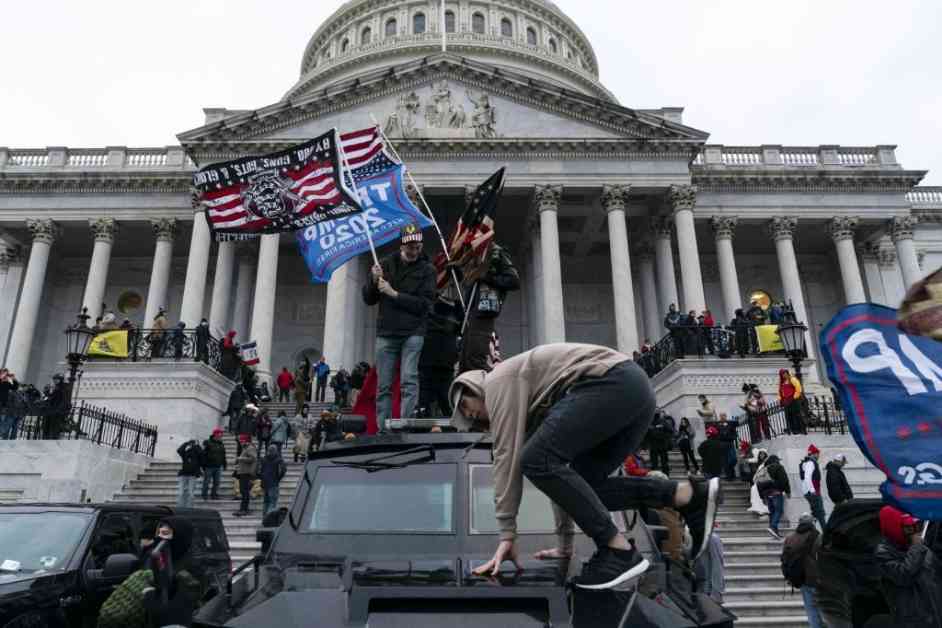Trump’s Pledge to Pardon Capitol Rioters Sparks Controversy: A Deep Dive into the Aftermath
In a shocking revelation to TIME magazine, former President Donald Trump vowed to pardon individuals convicted in connection with the 6 January Capitol riots within the first hour of his presidency if re-elected. This declaration has reignited debates surrounding one of the darkest moments in recent American history, raising concerns about accountability, justice, and the future of democracy in the United States.
The Insurrection: A Violent Assault on Democracy
On 6 January 2021, a violent mob of pro-Trump supporters launched a brazen attack on the US Capitol, seeking to disrupt the certification of Joe Biden’s victory in the 2020 presidential election. The chaos unfolded as approximately 2,500 individuals breached the Capitol Building, brandishing flags, weapons, and even erecting makeshift gallows. Law enforcement struggled to contain the situation as rioters breached security barriers, vandalized offices, and instilled fear in members of Congress and staff, including Vice President Mike Pence.
Trump’s Role in Inciting the Mob
Months of baseless claims of election fraud culminated in Trump’s fiery rhetoric on social media and during a rally on 6 January, where he encouraged his supporters to march to the Capitol and make their voices heard. Critics argue that Trump’s words and actions contributed to the violent uprising, which saw the participation of extremist groups like the Proud Boys, Oath Keepers, and Three Percenters.
Lives Lost and Injuries Sustained
Tragically, the events of 6 January resulted in the loss of four lives and injuries to around 140 law enforcement officers. The toll on Officer Brian Sicknick, who later succumbed to his injuries, underscored the severity of the violence unleashed that day. The psychological impact on responding officers also led to several suicides in the months following the insurrection.
Arrests and Prosecutions
The Justice Department has pursued legal action against more than 1,100 individuals involved in the Capitol riots, with charges ranging from using dangerous weapons to obstructing official proceedings. Notable convictions, such as that of Enrique Tarrio, highlight the accountability sought for those responsible for the attack.
Trump’s Controversial Response
In the aftermath of the riots, Trump’s statements praising the rioters as ‘patriots’ and his promises to pardon them have stirred up significant criticism. The implications of such actions on political violence, extremism, and democratic norms remain uncertain, as the nation grapples with the aftermath of this unprecedented breach of the Capitol.
As the specter of potential pardons looms large, the long-term ramifications of the Capitol riots on American democracy and the rule of law remain to be seen. The events of 6 January serve as a stark reminder of the fragility of democratic institutions in the face of political divisiveness and incendiary rhetoric, urging us to reflect on the importance of accountability, justice, and unity in safeguarding the future of our nation.













